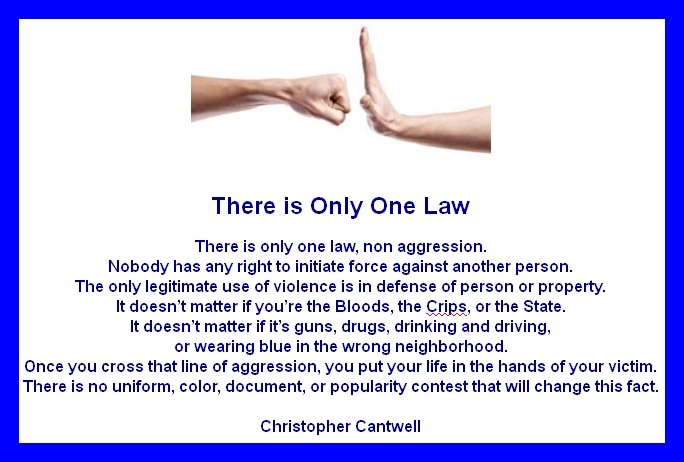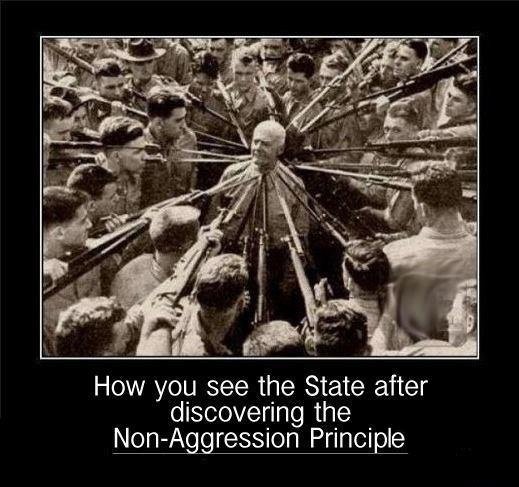Is morality subjective or objective? At one time I insisted that there was a list of objective morals, and that you could not simply decide one thing was moral and another was not.

moral: as a noun, a person's standards of behavior or beliefs concerning what is and is not acceptable for them to do.
I understand that although something might be true, unless you can prove it from a logical and irrefutable standpoint you can not defend it as an absolute fact. So although I might believe certain morals to be factual, i can not insist to others they are unless I can prove it unquestioningly.
Ironically, today I still stand behind objective morality, but from a different angle and perspective. Morality does not have to be a list of specific rules, it can be one general rule that can be violated in many different ways. In order for there to be an objective morality three things have to be true.
- It has to be agreed on universally.
- It has to be defended logically, not just based on a particular belief system.
- It can not contradict itself.
More often than not, when discussing morals, they are often referred to as very specific actions. For example, a common argument is that murder is objectively immoral because most anyone would not insist that murder can somehow be ok. The rebuttal to this often comes in the form of pointing out societies and cultures than don't seem to have a problem with destruction of other societies, cultures, etc. And that there might be specific instances in which the action is justified, and those instances are subjective.
This is why this debate is so foggy, because everything always 'depends' when it comes to specific actions, which technically makes the morality of those specific actions subjective. Another problem is that people often have different understandings of definitions, even if the difference is slight it can often cause a huge problem in disagreeable conversations because the parties involved aren't really understanding each other. I might say that the item in my hand is 'one' item, someone might argue with me that it is 'uno' item. Both mean the same thing, but have different understandings of the word to describe what they mean. So someone might say murder is immoral, another might agree with the exception of self defense, therefore calling the moral subjective, when in reality the first individual does not consider killing in self defense murder at all while the second does, only qualifying it as justified murder.
murder: as a verb, kill (someone) unlawfully and with premeditation.
the word murder by its definition as a verb is subjective to law, man made laws are based in subjectivity. Making murder by it's definition subjective. With one exception, that exception being that murder violates some natural law that we are all subject too, like gravity.
I argue that murder(or manslaughter), rape, theft, and slavery are violations of a natural law, and although they are different terms used to describe the different ways possible that you can violate this natural law, it is more important to understand the law itself, than the particular details of how it is violated. We have to first understand 'how' murder is objectively immoral before I can argue that it is. And there must be a mutual understanding of what that word means.
The natural law I am describing is called a few different things, but they all mean the same thing. The law of non aggression, the non aggression principle (the NAP), the right against coercion. This is what I would call the negative phrase, you could also take the positive phrase, the law of voluntary interaction. the positive and negative perspectives can not be separated, if one is true, so is the other.
Now I must defend this law in order to be able to call it a natural law, or an objective moral principle.
It is agreed on universally. I'm sure there are many objections right now, but let me explain my meaning. After all I need to define what this law means.
No person has the natural right to use coercion on another person. In order to disagree with that definition, you must first explain to me how you can be ok with something that you are not ok with. Let me give you an example: you can not consent to being murdered, if you do consent to being killed it is not murder, it is assisted suicide. Consensual rape is not rape it is consensual sex, consensual theft is a mutually agreed upon transaction or gifting. Consensual slavery is not slavery, it's voluntary servitude.
You can not consent to being held a captive, otherwise you are a guest. So long as you are in a consensual interaction you can not say that you are not ok with that interaction. It defies logic.
What this does is show us that all of the specific actions we might argue as objectively moral are actually subjective. Killing can be consensual, free labor can be given willingly, not all sex is rape (not all aggressive sex is rape). The moral is subjective to the individual. But in order for that to be true, the law of non aggression must be objective.
The law of non-aggression is a universal natural law. Each individual believes that certain actions, ones that violate his consent, are not ok. Though the specific actions are subjective, the underlying principle is not.
If the negative perspective is true, so is the positive. It is wrong that I be coerced against, therefore I have the right to voluntary interactions. In other words, nobody can own me without my consent, I own myself.
Each Individual initially owns their self. The only way he/she can be owned by another is if he/she willingly gives up his/her self ownership. It can not be morally forced away from them. I own myself, you own yourself, your neighbor owns himself. I have the ultimate say in what I choose to do. I am born with this ability. Nobody else pulls the strings without using coercion.
How self ownership applies to private property
Because I own myself I own my life. As far as we factually know, in this world, we only exist for a certain amount if time. Think of a persons life as a timeline from the day he is born, to the day he dies. If I use a portion of my life for any specific action I own that action because I traded a chunk of my life for it. A piece of that timeline. If I find a seed, and no other person owns that seed, I can pick it up and call it mine until proven that it originally belonged to someone else. I foraged that seed, I traded a moment of my life, the only thing I initially own, for the seed. I can plant the seed, I can prune it and assist it in its growth, at any point I can fell the tree it has turned into, I can mill the wood, I can turn that wood into a chair. I exchanged a part of myself, my life, for the chair. Without me, that particular chair would not even exist. I own the chair, it has a piece of me in it, the piece of the timeline of my life that i gave up for it to exist. The chair is a product of myself, my time, my energy, my life, my knowledge, and my skill.
To deny this, you must first deny self-ownership. To deny self ownership is to deny the law of non aggression, to deny the law of non aggression is to deny your right not to be murdered, not to be raped, not to be enslaved by whomever whenever. In this false reality, nobody cares whether they are killed or raped or enslaved. It is all irrelevant, and no action can logically deserve punishment or prevention.
But because we all perceive certain actions to be relevant to ourselves, It can not be denied. In the same way we all perceive gravity to exist.
This is why theft is objectively wrong. To steal from an individual is to take a piece of their life.
How the law of non aggression applies to self-defense

I once had a conversation about this with a friend, he proceeded to address what he saw as a logical inconsistency. If this is true then how do I justify self defense. If my life is in danger, how am I justified in killing the man attempting to kill me, if doing so would violate his consent. At that particular moment I didn't know how to answer him, but after pondering the question I've discovered that the answer is actually quite simple.
Let's use an example: Joe and Bob agree to a boxing match, the boxing match has certain rules they are both aware of and both agree to abide by. When they step into a ring they are both consenting to be there and to participate in the interaction. Bob tries to hit Joe and not get hit, Joe tries to hit Bob and not get hit. This is a voluntary interaction.
Now let's say Bob has been kidnapped and locked in a cage, Joe steps into the cage and locks the door behind him. Bob is there against his consent, Joe is consenting to be there. Now Joe precedes to beat up Bob, Joe is consenting, Bob is not.
Remember how I said in order for the negative to be true the positive must as well? And one of my three requirements for objective morality is that it can not contradict itself. In order to exhibit aggression against another person, you must also forfeit your right to non agression. You can not apply a moral to yourself and not apply it to another and still claim your right to an objective morality, you have now willingly forfeited it. As in the first scenario, Joe and Bob both forfeited their right to not be coerced , willingly, under the agreement of certain rules and conditions. In the second scenario, Joe has forfeited that right again, and with no rules, but bob has not. Because Joe has willingly forfeited the law of non aggression, nothing Bob does, or does not do, can be considered immoral from an objective standard. Joe has agreed to the interaction of violence.

How this applies to anarchy
This is something that I don't have to explain to other anarchists, but unfortunately many people have a profound misunderstanding of anarchism and won't make the connection.
The state's role is to violate the non aggression principle. In fact it can not exist without doing so. The state funds itself through extortion, it creates subjective laws that are not violations of the NAP and uses violence to enforce them. The government claims to have the right to make your decisions for you, and to lock you in a cage if you don't follow its orders. Those who understand the NAP know that these are not rights that can exist. They are merely claims to rights that they do not have.
BUT WHAT ABOUT DEMOCRACY?
If you put all ideas on scale of one to ten, all statism falls underneath .1
Sure maybe democracy is .09 and feudalism is .07 but it's still a bad idea. You can not give another person a right that you do not have. If you don't have the right to lock your neighbor in a cage then how did congress get that right?
Anarchists understand that the government is the ultimate violator of the only objective moral that we can be logically defended.
- It robs more than any gang or individual could ever dream of (taxation, fines, fees)
- It murders more innocent people by far than anyone or anything else can
- It claims to have the right to lock you in a cage, and will even claim that it's for your own good
- It claims to have the right to enslave you, then make you kill for it's own benefit (conscription)
- It attempts to remove your right to self ownership, then sells that right back to you (licensing)
The whole point of governments existence is to violate this natural law. The defenders of the state will attempt to justify its existence by claiming that its necessary to allow this arbitrary group of people to violate our natural rights in order to prevent other people from violating our natural rights. I shouldn't have to explain to you how absurd that is.

Great post @rimann. I did a fast read and need to go back and read slower. Too much info to take in that quickly without going back and slowing down.
Right on, thank you. Please let me know your thoughts when you get to go back over it. They are thoughts I have been processing for some time now, it's the first time I've opened them up for discussion
Okay That is an excellent piece. I pretty much agree with everything you said and don't believe I could have said it as well.
I would like to get your take on Piracy or use of Intellectual Property within the scope of NAP and Anarcho-Capitalism. I'm of the opinion that most Intellectual Property should not exist.
I spoke about Piracy in the following post but didn't particularly phrase it from an Anarchists perspective:
https://steemit.com/philosophy/@dwinblood/word-hijacking-the-study-based-battle-for-control-of-our-minds
I bring this up because when reading through your section on theft this was the only actual questions and possible area of debate I came up with.
I haven't put a lot of thought into intellectual property. But my initial thoughts are on par with what you said in your article. I do not believe that copying is the same as theft. I'd have to think about it some more but I might feel a little different about plagiarism.
It's one thing to copy something for your entertainment or education, but claiming someone else's work as your own and reaping the benefits of it seems objectionable.
I'll have to hash this out some more and see how it fits into what I wrote here.
When you copy something you aren't robbing from another person. Really the only way you could say that it is, is if you make the claim that you are robbing 'potential' resources from that person. But in my book potential crimes aren't crimes.
In reality I think this won't even be an issue much longer. It's easier to get on Spotify than download torrents anymore and open source software is really taking off. Hopefully intellectual property will be an arbitrary concept in the near future. Creators of content will find other ways of making money than selling copies.
Patents are bullshit though
I download TV shows from all over the planet. It's kind of cool. I can watch stuff that my networks refuse to air. I have cable, and other services that some family members use but I still pretty much download everything I watch.
I upvote U